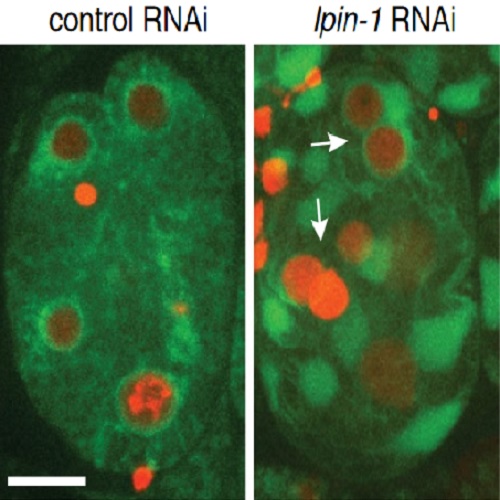Caenorhabditis elegans polo-like kinase PLK-1 is required for merging parental genomes into a single nucleus.
Before the first zygotic division, the nuclear envelopes of the maternal and paternal pronuclei disassemble, allowing both sets of chromosomes to be incorporated into a single nucleus in daughter cells after mitosis. We found that in Caenorhabditis elegans, partial inactivation of the polo-like kinase PLK-1 causes the formation of two nuclei, containing either the maternal or paternal chromosomes, in each daughter cell. These two nuclei gave rise to paired nuclei in all subsequent cell divisions. The paired-nuclei phenotype was caused by a defect in forming a gap in the nuclear envelopes at the interface between the two pronuclei during the first mitotic division. This was accompanied by defects in chromosome congression and alignment of the maternal and paternal metaphase plates relative to each other. Perturbing chromosome congression by other means also resulted in failure to disassemble the nuclear envelope between the two pronuclei. Our data further show that PLK-1 is needed for nuclear envelope breakdown during early embryogenesis. We propose that during the first zygotic division, PLK-1-dependent chromosome congression and metaphase plate alignment are necessary for the disassembly of the nuclear envelope between the two pronuclei, ultimately allowing intermingling of the maternal and paternal chromosomes.

- Mol. Biol. Cell 2015 Dec 15;26(25):4718-35
- 2015
- Cell Biology
- 26490119
- PubMed
Enabled by:
